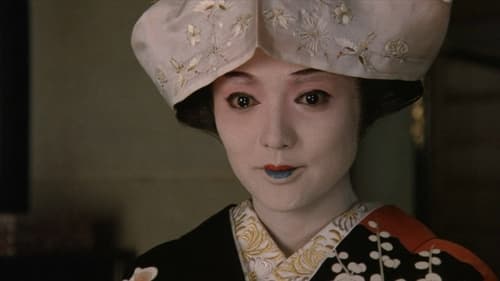
寛政時代の江戸。老中・松平定信は町人文化の隆盛に危機感を抱き、厳しい弾圧を加え始めていた。そんな中、役者絵の第一人者・歌麿は、定信が江戸出版界の大物・蔦屋重三郎を標的にしていることに気付き、早々と蔦屋のもとから他の版元にくら替えしてしまう。売れっ子の歌麿に逃げられた蔦屋は彼に代わる絵師を探し始め、やがてけがで引退を余儀なくされた元役者のとんぼこと十郎兵衛に、荒削りながら斬新な才能を見いだすが…。

This story is based on the novel "Jo no mai" by Tomiko Miyao which is based on the life of painter Shōen Uemura (1875–1949), the first woman to be awarded the Order of Culture. The title refers to the masterpiece bijinga ("picture of a beautiful woman") that Uemura painted at the age of 61. The main character, Tsuya Shimamura, is born in Kyoto as the second daughter of a tea trader who dies before her birth. Tsuya, who loves painting more than anything and is hopeless at housework, attends art school and at age 15 receives the name Shōsui (from the characters for "pine" and "green") from her teacher. The crown prince of England purchases one of her works, propelling her to fame overnight. The novel portrays the remainder of her stormy life, during which she is impregnated by her teacher and raises a fatherless child; through it all she devotes herself to her painting, undaunted.

Based on a true story, an elderly woman resiliently spends nine months attempting to retrieve her husband's dead body, fighting government bureaucracy and indifference all along the way.

Nichigyo
1966 film directed by Kudo.

film directed by Tai Katô

